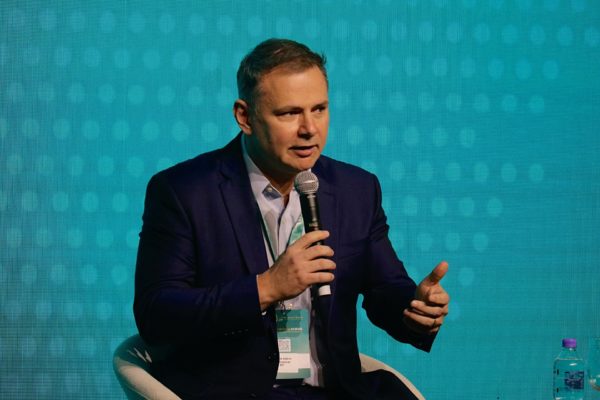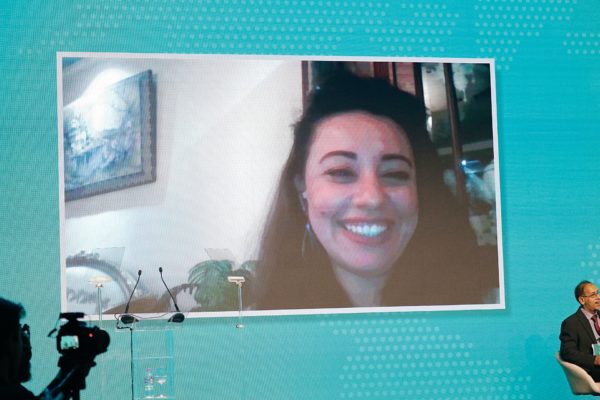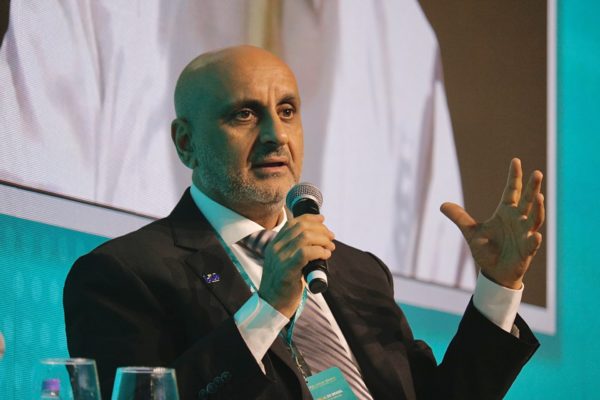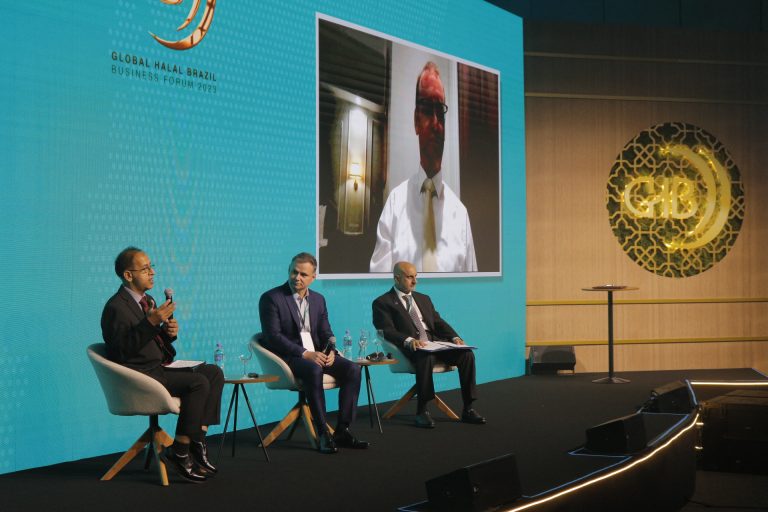São Paulo – Various Muslim-majority countries have strategic distribution and logistics hubs for sales to Islamic markets, including the Middle East, Africa, and Asia, that can facilitate and ensure security in trading with these regions. Halal, logistics, and strategic hubs was the topic of a panel on the second day of the 2023 Global Halal Brazil (GHB) Business Forum.

Leonardo Dall’Orto, vice president of International Markets & Planning at BRF, said that BRF has now its own salespeople in the Middle East, with ten distribution centers and over one hundred trucks in the region.
“We’ve invested heavily in the Middle East. We have hubs in Dubai, Jeddah, and other cities, too. In Turkey, we sell 30,000 tonnes a month, and we have small vehicles to transport the products to 15 points of sale,” said the VP of BRP.

Egypt’s Silvia Adly Saweris, of the Arab Academy for Science, Technology and Maritime Transport Faculty of International Transport and Logistics, said the Muslim consumer market is the fastest growing and the purchasing power of Muslim-majority countries is high. She participated by video call.
LBB International CEO Marco Tieman, of Malaysia, also joined the panel online. He said the halal supply chain must have traceability, which ensures the quality of the products for other markets besides the Muslim-majority ones.
“Using the halal principles for other countries can improve the quality standards worldwide,” he said.

World Logistics Passport (WLP) general manager Mahmood Al Bastaki of the United Arab Emirates said Brazil should be congratulated for having integrated so well the halal practices from a different culture and making halal part of the domestic industry.
“No country has the integrity of the halal process as Brazil has. It’s something to be proud of,” said disse Al Bastaki.
He said that many non-Muslim market require the halal certification for foods both due to the merciful, painless killing of the animal and the process and operation hygiene.
The general manager added that the countries want to do business with the Brazilian halal market and the WLP helps in facilitating and debureaucratizing logistics process. “We want to see the world operating as if it were a city,” he said.
The GHB is supported by the International Halal Academy, the Islamic Chamber of Commerce, Industry and Agriculture, the Union of Arab Chambers, and the Arab League, and it’s held in partnership with the Brazilian Federal Government, Ministry of Development, Industry, Trade and Services, Ministry of Foreign Affairs, and ApexBrasil.
Its sponsors are BRF, Marfrig, Minerva Foods, Laila Travel, Turkish Airlines, Brazilian Tourism Board (Embratur), Travel Plus, H2R Insights & Trends, World Logistic Passport (WLP), Bank ABC in Brazil, Seara, Pão & Arte, Cristal Plus, Pamunã Alimentos.
Read more about the GHB Business Forum.
Watch the panel 4 and the second day of GHB below:
Translated by Guilherme Miranda




